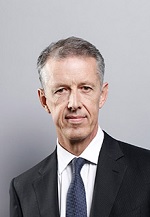 |
| MorphoSys CEO Simon Moroney |
Germany's MorphoSys is moving on after the surprise cancelation of a Celgene ($CELG) partnership spooked investors and battered the company's share price, with CEO Simon Moroney preaching patience for an early-stage cancer candidate.
Last month, Celgene pulled the plug on an $818 million deal tied to MOR202, a cancer-fighting antibody that targets the antigen CD38. Analysts feared the Big Biotech had taken a look at Phase I multiple myeloma data and seen something alarming, and some speculated Celgene had concluded that MOR202 had fallen too far behind rival CD38 programs, including Johnson & Johnson's ($JNJ) daratumumab, to warrant further investment.
But Moroney says the obituaries for MOR202 are premature. In an interview with Die Welt's Sunday magazine, the CEO said Celgene's cold feet are part of doing business in biotech, adding that "sometimes companies simply have a different perspective." MorphoSys still believes in MOR202's promise, and the company expects to unveil Phase I/II data by the end of the year, holding off on a final decision until then.
No matter what happens with MOR202, J&J will almost certainly be the first to market with a CD38 antibody, Moroney conceded, but MorphoSys will still have a shot of developing a best-in-class option. Humira, for example, was the third entrant among TNF-blocking antibodies, he said, and it ended up becoming one of the most successful products of all time.
And as for that 20% plunge in MorphoSys' share price--the worst since a 2002 German stock market crisis--Moroney blames investor polarity and argues that his company's value will shine through in time.
"We have already survived a series of ups and downs in the stock market," Moroney told Die Welt. "The first reaction of investors is always the same: Everyone thinks if a partnership fails then the project is dead, and then analysts come and calculate that it's just not so, and then things calm down again."
- read the interview